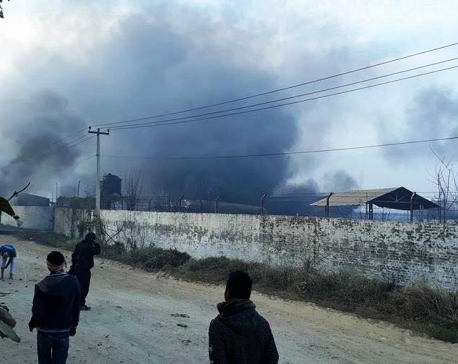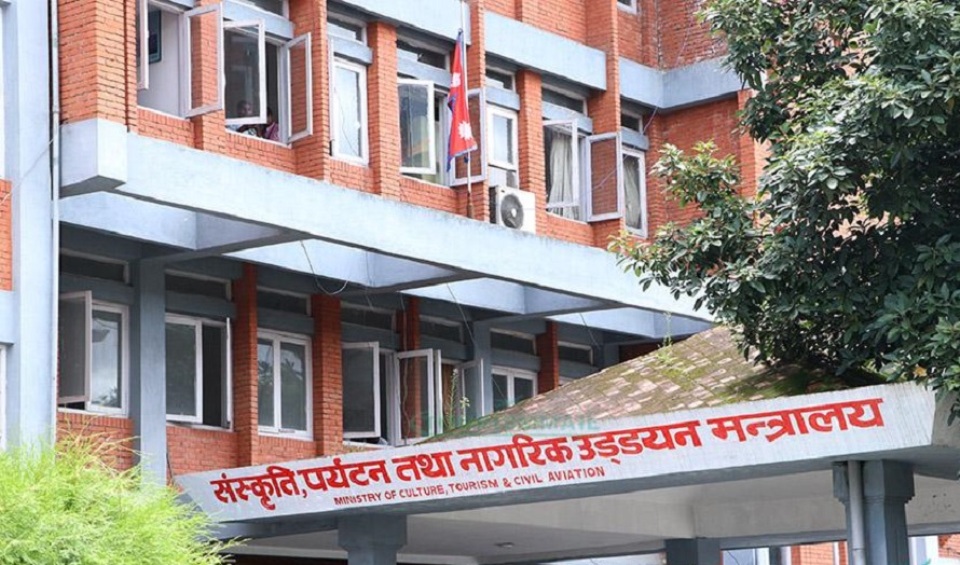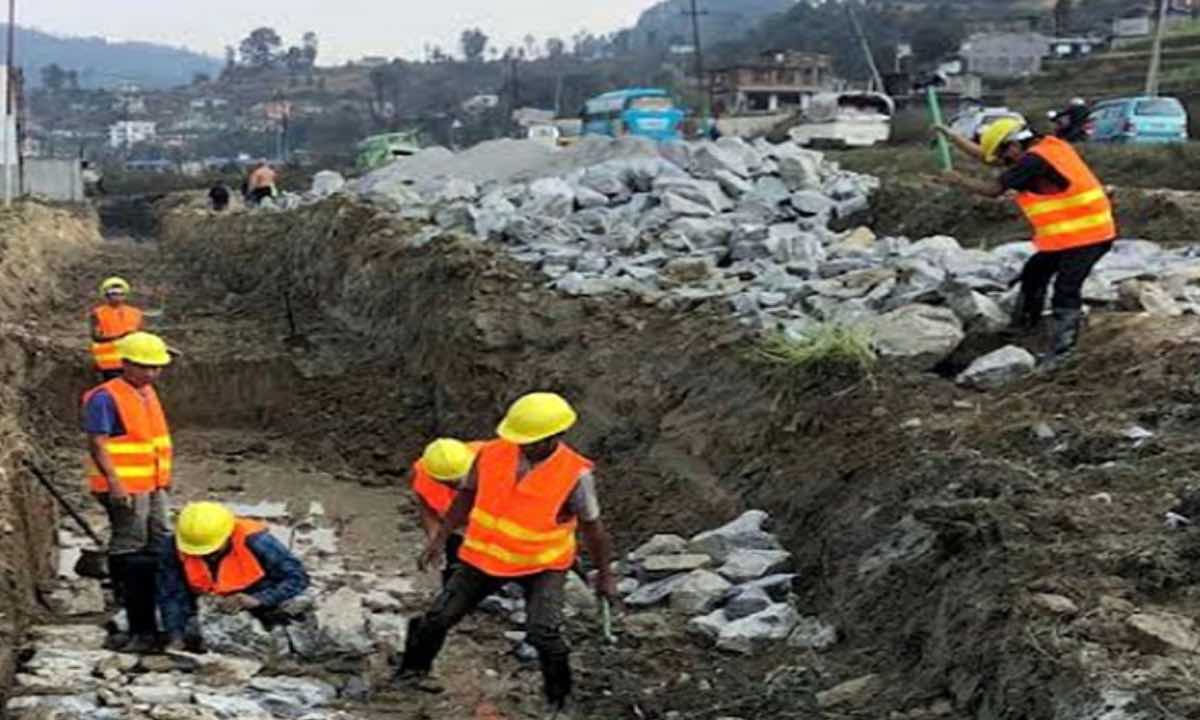
OR
Know thy laws
Published On: May 23, 2018 01:30 AM NPT

What’s in laws and bills proposed by the government? Do they help in safeguarding right to freedom of expression or do they seek to curtail those rights?
With the successful conclusion of three tiers of elections in accordance with the new constitution, Nepal has now gone into fully implementing federal setup. In the changed political and administrative context, the government is drafting and amending laws to make them relevant to the national charter. But what actually is there in the laws and bills that have been proposed? Do they further help in safeguarding right to freedom of expression?
In this article, I trace some of the laws related to freedom of expression and information, communications, privacy and internet freedom that are being drafted and amended by the new government.
Proposed bills
Mass Communications Bill (2018) has been consolidated to regulate the entire communications sector through a single umbrella act. The bill aims to revoke three existing acts related to communications sector namely Press and Publication Act (1991), National Broadcasting Act (1993) and Working Journalist Act (1993). The bill seeks to establish National Mass Communications Authority for regulating license and professional ethics as well as self-regulation of the media houses. It has envisioned setting up new institutions such as National Mass Communication Training Academy, media/ journalism museum and information bank as well as journalist welfare fund.
Public Service Broadcasting Bill (2018) has been proposed in order to establish an independent public broadcasting authority that broadcasts neutral and unbiased news, views, and information promoting health, education and entertainment to enhance citizens’ knowledge and empower them on several issues concerning public services, rights and entitlements.
The bill has envisioned to merge state owned Radio Nepal and Nepal Television into a public service broadcasting authority as an autonomous body with its own rights and duties. It has also proposed an Ombudsman Committee to redress the complaints filed against the service of the authority itself.
Advertisement Regulation Bill (2018) has been proposed in order to regulate the display and advertisement of goods and services in regard to production, distribution and market operation via mass communications or any other mediums. It aims at protecting the public interest issues related to advertisement. The bill has attempted to regulate hoarding board advertisement, advertisement by communications medium, free advertisement etc. District Court has been given the authority to look after cases against advertisement act.
Likewise, the government has come up with the draft bill of Right to Information (RTI) Act (2018) which aims at amending the existing RTI Act (2007). The amended bill has incorporated new provisions to align its laws with federal set up. The draft has amended some of the sections of 2007 Act. As per the amended part, every public body has to update and publish the information in every four months. Also the public information officer has to publish the updated information in website each month. The National Information Commission has to give the final verdict on the appeal within 90 days instead of 60. If any person does not obey the act or information officer the commission may impose fine up to Rs 10,000 and commission would recommend the institution to take action against him/ her. Also the chief of public body that denies giving the information should pay the compensation of Rs 5,000.
A separate bill has been proposed to define the works, rights, and duties of the National Information Commission. The bill focuses on the establishment of information commission as the regulatory body of RTI and has defined the perks and benefits provided to the commissioner along with their rights and duties.
In terms of privacy, Nepal Law Commission has been drafting a separate privacy bill in accordance with Article 28 of the constitution that guarantees right to privacy as the fundamental right. This is the first time the separate act related to privacy is being drafted. The bill is yet to be finalized by the commission. Separate committee has been established in order to finalize the draft bill. The bill has incorporated the definition of the privacy and aims at criminalizing the act that breaches the privacy of citizen.
Ministry of Communications and Information Technology has come up with a 100-day work plan where it has mentioned that the cyber law bill and ICT bill will be finalized after the discussion with the concerned stakeholders. The first round of discussion was held with the stakeholders on April 17. Nepal Telecommunications Authority has drafted the Cyber Crime bill but it has not been made public yet.
Media watch
Press Council Nepal has come up with an amendment bill of Press Council Act for amending the existing Press Council Act (1991). Several provisions have been amended. New emerging field of broadcasting sector including online media has been incorporated in the act. At a time when media should be promoted for the practice of self-regulation, the amendment has put the council under government regulation. More government role may be observed in selection committee of the board member and setting the rights and duties of the council. This brings government domination in board and the council may lose its autonomous status.
In order to amend and consolidate existing criminal laws and civil laws in one document, new criminal code and civil code has been introduced. And it is scheduled to come into effect from August 17 2018. The law itself is appreciable but it has been observed that some parts of the Act such as provisions related to freedom of information and expression, right to privacy, right to communications, press and publication right, among others must be set within the international and constitutional standards. Provisions restricting freedom of expression based on national security, privacy, defamation, blasphemy, obscenity, and hate speech in the civil and criminal codes need to be reviewed.
Online Media Directive (2017) has been introduced under Good Governance (Management and Operation) Act (2007). This is discouraging to internet-based media. Despite the call for withdrawal of this directive, the concerned ministry has taken no action regarding this. The Supreme Court seems reluctant to set a hearing date for the writ filed challenging the provisions of this directive.
Province 4 policy
Province 4 has come up with Province 4 Communication Policy (2018) with the aim of making the government open, accountable and transparent. The policy has tried to incorporate the provision related to broadcasting service by establishing a province broadcasting board. In addition, the provisions related to private FM broadcasting, public broadcasting, information bank, print media, online media, internet service films, advertisement are mentioned in the policy.
Any government effort to institutionalize people’s fundamental rights is welcome but they should not, in any way, seek to curtail freedom of expression, right to information and right to privacy.
The author is Chief Executive Officer at Freedom Forum, Nepal
Twitter: @tndahal7
You May Like This

Dec 20: 6 things to know by 6 PM today
Your daily dose of today's important news. ... Read More...

Voters in Jumla never know candidates, but still, vote
JUMLA, Nov 15: Haijali Thapa, a local of Tila Rural Municipality of Jumla, has been voting every election conducted after restoration... Read More...

Five works of art you should know
You don’t have to be an art historian to know what the Mona Lisa looks like. In fact, you don’t... Read More...







Just In
- Public transport to operate during Qatari king’s arrival, TIA to be closed for about half an hour
- One arrested from Jhapa in possession of 43.15 grams of brown sugar
- EC to tighten security arrangements for by-elections
- Gold price drops by Rs 2,700 per tola
- Seven houses destroyed in fire, property worth Rs 5.4 million gutted
- Police pistol missing after drug operation in Bara, investigation underway
- Truck carrying chemical used in drugs catches fire
- Nepali journalists Sedhai and Kharel awarded second prize at Fetisov Journalism Awards for their exposé on worker exploitation in Qatar World Cup











Leave A Comment